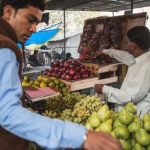ESSP Working Paper 138, by Kibrom A. Abay, Nathaniel D. Jensen. Abstract: Despite several studies showing the effect of access to markets and weather conditions on crop production, we know quite little on whether and how livestock production systems respond to variation in weather risk and access to markets. In this paper, we study whether and […]
Africa’s Litigated Democracy
Project Syndicate published an op-ed by Senior Research Fellows Bob Baulch and Danielle Resnick. The op-ed discusses Malawi’s litigated general elections and compares it to re-run elections held in other African countries. The authors suggest from their research four lessons for young African democracies in a contested election scenario.
Does rural Africa have a ‘youth problem’?
Blog post by James Thurlow, Valerie Mueller and Julia Wilson. More than 20 million young people aged 15-24 join the workforce in Africa south of the Sahara every year. These young job seekers will need to find work in today’s more competitive global economy, and not everyone thinks they will be successful. Many governments are […]
The world needs higher-quality diets. But is better nutrition affordable for all?
Messages around healthy eating are nothing new—but nowadays we are increasingly told to eat well not just for our own health but also for the planet. This debate was given a boost at the beginning of 2019 with the publication of the EAT-Lancet Commission report on the world's diet, which called for a “great food transformation.” It condemned […]
Coffee Value Chain Survey in Ethiopia: Producer/Household Survey
The coffee producer survey was conducted to study the coffee value chains in order to make recommendations to policymakers on how to improve the value chain to the benefit of farmers. The data collected in this survey helps to understand how the coffee value chains are transforming in terms of quality and demand of coffee, […]




